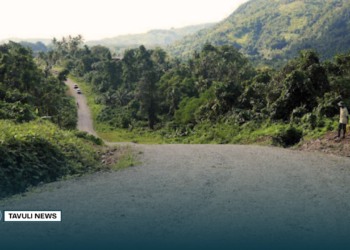UNICEF is raising concerns about the welfare of children as the upcoming cyclone season approaches. Following the unexpected occurrence of Tropical Cyclone Lola, many children have already faced three Category 4 cyclones in 2023 and four severe cyclones, including a Category 5, in the past three years. Current predictions indicate that the Pacific countries may experience between 8 to 14 cyclones, with 4 to 6 expected to affect Vanuatu.
In the immediate aftermath of Tropical Cyclone Lola, it is crucial to respond promptly to reach the most vulnerable individuals and prevent the deterioration of their living conditions. UNICEF has a local warehouse stocked with emergency supplies ready for distribution in the affected areas, with more supplies en route to the country. However, given the season’s predictions and the increasing frequency of severe storms, it is equally vital to ensure a resilient and sustainable long-term response.
UNICEF Pacific Representative Jonathan Veitch emphasizes the urgency, stating, “There are five-year-olds in Vanuatu today who have feared for their lives four times in their short lifetimes. We must prioritize long-term climate resilience and implement strategies that protect our environment, infrastructure, and, most importantly, the well-being of our communities. Providing life-saving support is not enough; we must also improve and strengthen health, education, and water systems to better withstand the next major shock.”
While UNICEF Pacific and its partners are actively collaborating with governments to provide support, the challenging situation in Vanuatu arises due to the remote locations of many affected communities. Significant and rapid commitments are needed to enhance community resilience in the long term.
Children and young people are disproportionately affected by climate-related disasters. Repeated exposure to such events has profound effects on their well-being, psychological and physical health, and puts them at heightened risk of contracting water-borne diseases through contaminated water supplies. This compromises their nutritional status, reduces their learning outcomes at school, and prevents them from reaching their full potential. When essential services do not fully recover, vulnerability increases with each subsequent cyclone.
Investing in resilient infrastructure and promoting sustainable practices can minimize the devastating effects of cyclones. The provision of services in crisis-affected areas must consider not only the quality of infrastructure but also the capacity and preparedness of service providers, including teachers, nurses, and medical staff.
UNICEF Pacific calls on its partners to urgently work together to develop proactive measures aimed at mitigating the impacts of future cyclones. It is essential to provide the support needed to ensure that communities can withstand and recover from future natural hazards and the effects of the climate crisis.
Source: UNICEF Pacific































![Chovohio [left] and Charivunga [right] confluence, to create a dam for sediment control](https://www.tavulinews.com.sb/wp-content/uploads/2025/04/Add-a-heading-43-360x180.png)

















































